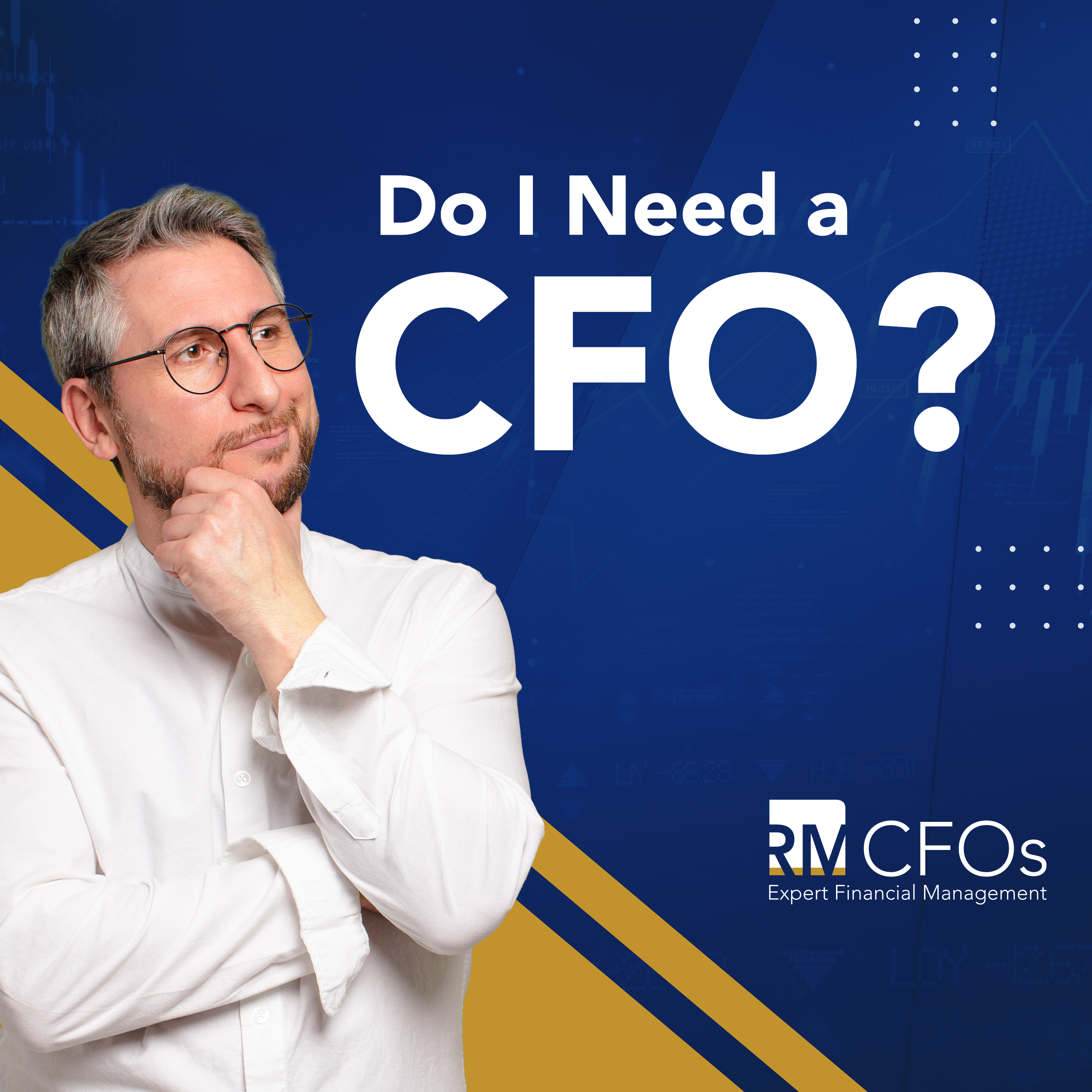Episode Transcript
[00:00:00] Speaker A: Welcome back to Do You Need a CFO?, a podcast series from Rankin McKenzie. In our last episode, we explored how to define the CFO role for your company—scope, qualifications, cultural fit, and whether the position should be full-time or fractional.
Today we’re diving deeper into that last piece: comparing fractional versus full-time CFOs and helping you decide which model fits your business right now.
As always, a quick disclosure: this is an AI dramatization based on the free executive resources available at rankinmckenzie.com. The voices are synthetic, but the insights come from the real-world expertise of Rankin McKenzie’s CFOs who have guided hundreds of businesses through this decision.
[00:00:47] Speaker B: And this really is one of the most practical questions business owners wrestle with: do I bring in a fractional CFO part-time, or do I commit to a full-time hire? The answer depends on revenue, complexity, growth stage, and budget. So let’s unpack it step by step.
[00:01:03] Speaker A: Let’s start with the fractional CFO. Think of it as on-demand senior expertise. Fractional CFOs work with multiple companies, typically dedicating one or two days a week—or even just a few days a month—to your business. They deliver strategic oversight without the full-time price tag.
[00:01:21] Speaker B: And that price tag is significant. A full-time CFO in the U.S. averages more than $350,000 in base salary, with bonuses and equity often pushing the total over $400,000. For companies under $50 million in revenue, that level of expense can be a stretch. A fractional CFO delivers expertise for a fraction of the cost—often 30 to 50% of what you’d pay full-time. Exactly.
[00:01:45] Speaker A: But the value isn’t only in cost savings. Fractional CFOs bring cross-industry experience because they work with multiple businesses. They see patterns, best practices, and pitfalls. They can introduce systems, processes, and strategies that might take your company years to discover on its own.
[00:02:05] Speaker B: I remember a professional services firm that hired a fractional CFO. Within three months, he had implemented dashboards, restructured pricing, and introduced better cash flow forecasting. The impact was immediate—and the company didn’t need him full-time to get those results.
[00:02:21] Speaker A: That’s the sweet spot for fractional CFOs: leverage. They professionalize the finance function, give leadership visibility, and prepare the company for bigger moves without overinvesting before the business is ready.
Now let’s look at full-time CFOs. There’s a point where fractional support isn’t enough. When your company hits scale—say $50 million, $100 million, or more—you need a dedicated leader who lives and breathes your business every day.
[00:02:50] Speaker B: And it’s not just about size. Complexity matters too. If you’re running international operations, managing multiple entities, dealing with heavy regulatory requirements, or pursuing an IPO, those are signs you need a full-time CFO who is fully immersed in the business.
[00:03:07] Speaker A: Right. A full-time CFO goes beyond periodic oversight. They’re embedded in strategy, culture, operations, and leadership. They run board meetings, negotiate major deals, build long-term capital structures, and mentor the finance team daily. That level of impact requires full-time attention.
[00:03:25] Speaker B: But here’s the mistake: companies hiring a full-time CFO too early. They think it signals maturity or credibility, but then they realize the role is underutilized and the cost is hard to justify.
[00:03:37] Speaker A: Exactly. A premature full-time hire often ends up doing controller-level work, not strategic leadership. That’s wasted money and wasted talent. The better path for many companies is to start fractional, build the systems and visibility, and then transition when the scale demands it.
So how do you know when it’s time to make that leap? There are a few indicators.
First, workload: if your fractional CFO is consistently spending more time than contracted and still can’t cover all the needs, it may be time to go full-time.
[00:04:10] Speaker B: Second, complexity: if your business has reached the point where you’re constantly in high-stakes negotiations, large financing rounds, acquisitions, or expansions, a part-time presence may not be enough. You need someone embedded daily.
[00:04:25] Speaker A: And third, leadership maturity: when the finance function has grown to a full department—controllers, analysts, accountants—you need a full-time CFO to lead that team and align them with strategy.
[00:04:37] Speaker B: Here’s another way to think about it. Fractional CFOs get you ready for scale. Full-time CFOs take you through scale. They’re both right at different times.
[00:04:46] Speaker A: That’s a great framing. Fractional is about readiness—building foundations, installing systems, creating visibility. Full-time is about acceleration—navigating complexity, managing stakeholders, and executing long-term strategy.
Let’s recap. Fractional CFOs deliver senior expertise, cost efficiency, and cross-industry perspective. They’re ideal for companies under $50 million in revenue or those still professionalizing their finance function.
Full-time CFOs deliver deep integration, daily leadership, and strategic immersion. They’re essential for larger, more complex organizations that need constant financial oversight.
[00:05:32] Speaker B: If you hire full-time too early, you risk overspending and underutilizing. If you stick with fractional too long, you risk undersupporting your growth. The key is recognizing when the balance tips—and planning for the transition.
[00:05:44] Speaker A: That’s it for episode four of Do You Need a CFO? Thanks for joining us as we explored fractional versus full-time CFOs and how to choose the model that fits your business today.
[00:05:55] Speaker B: And remember, this episode was an AI dramatization based on the free executive resources at rankinmckenzie.com. Visit rankinmckenzie.com/resources to access those insights yourself.
[00:06:09] Speaker A: Thanks for listening.


